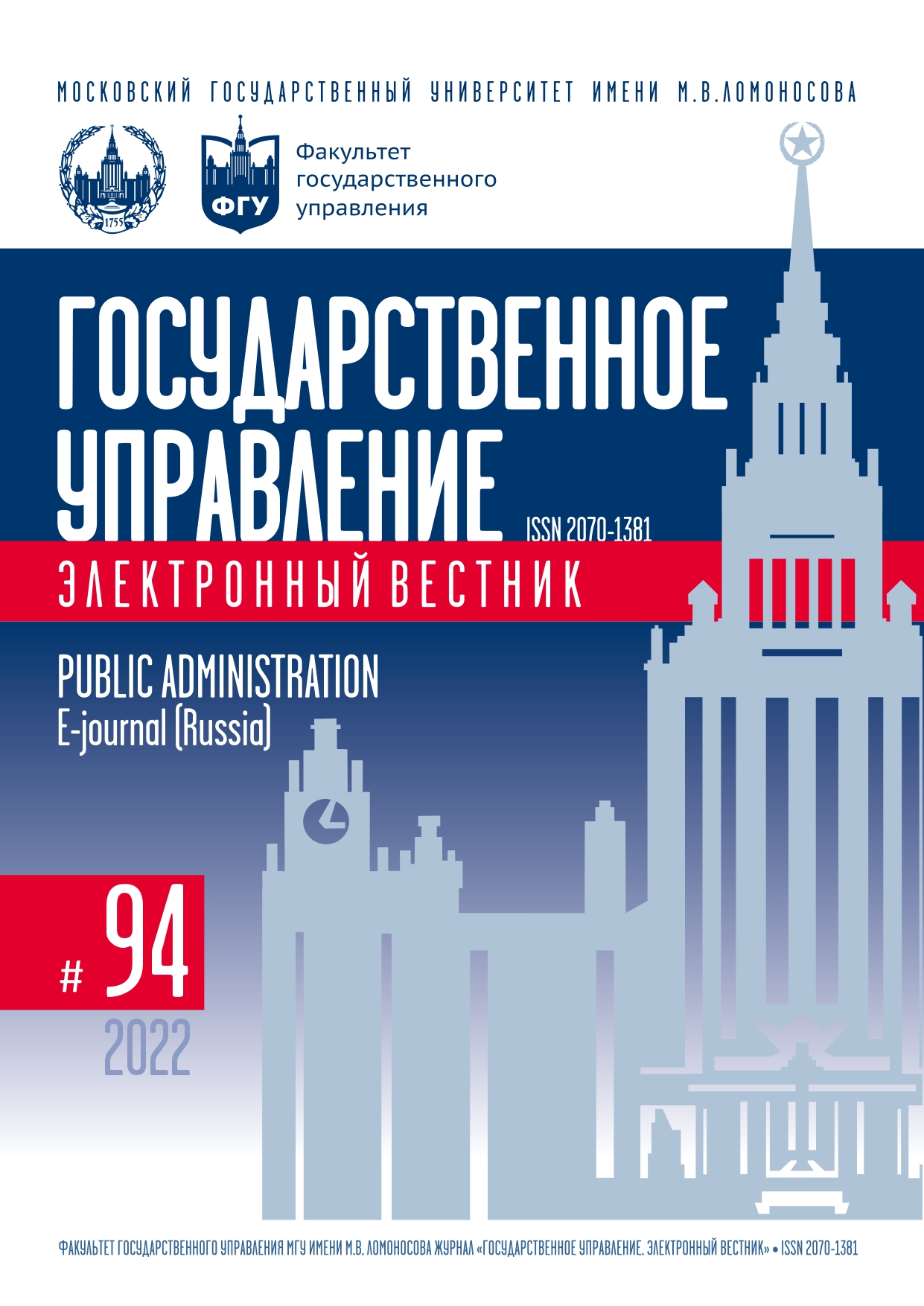Implementation of Smart City Project in Cities of Ural Federal District
Keywords:
Digitalization, information and communication technologies, smart city, departmental project, Q index of Russian citiesAbstract
Smart cities of the future are a priority tool for managing the development of municipalities in order to ensure that the ever-growing needs of their residents are met. Information and communication advances make it possible to better manage available resources, improve the quality of public (municipal) services, and overcome the problems of urbanization. In this regard, the creation of a sustainable, reasonable space in ever-growing cities is a challenge for public authorities around the world, including Russia. In our country, the systematic process of introducing “smart” technologies in city government started in 2018 in connection with the adoption of a departmental project by the Ministry of Construction of Russia. The purpose of the study is to evaluate the practice of implementing the departmental project of the Ministry of Construction of Russia “Smart City” in the cities of the Ural Federal District in various areas. The assessment was carried out on the basis of the IQ Index of cities in 2021, which includes an assessment of digitalization of such areas as urban management, smart housing and communal services, innovations for the urban environment, smart urban transport, intelligent systems for public and environmental safety, tourism and service, intelligent systems for social services, economic state and investment climate, as well as the infrastructure of communication networks. An analysis of the IQ Index of cities made it possible to determine that the most subsiding areas of intellectualization of the urban environment directly affect all residents — transport and housing and communal services. The dependence of the results of introducing “smart” technologies on the level of budgetary security of the region is revealed. Moreover, practical recommendations were made to improve the efficiency of implementing the departmental project of the Ministry of Construction of Russia “Smart City” based on the experience of the leading cities of the Ural Federal District.
References
Макаренко К.В., Логиновская В.О. «Умный город»: стандарты, проблемы, перспективы развития // Вестник ЮУрГУ. Серия: Компьютерные технологии, управление, радиоэлектроника. 2019. Т. 19. №3. С. 165–171. DOI: 10.14529/ctcr190316
Пивкина Н.Ю. Умные города как новый стандарт качества жизни населения // Гуманитарные науки. Вестник Финансового университета. 2019. Т. 9. № 4. С. 120–125. DOI: 10.26794/2226-7867-2019-9-4-120-125
Попов Е.В., Семячков К.А. Систематизация подходов к оценке развития умных городов // Экономика региона. 2020. Т. 16. № 1. C. 14–27. DOI:10.17059/2020-l-2
Dashkevych O., Portnov B.A. Criteria for Smart City Identification: A Systematic Literature Review // Sustainability. 2022. Vol. 14.Is. 8. DOI: 10.3390/su14084448
Hägerstrand T. Innovation Diffusion as a Spatial Process. Chicago: University of Chicago Press, 1967.
Höffken J.I., Limmer A. Smart and Eco-Cities in India and China // Local Environment. 2019. Vol. 24. Is. 7. P. 646–661. DOI: 10.1080/13549839.2019.1628730
Khan J., Khan M.A., Jhanjhi N.Z., Humayun M., Alourani A. Smart-City-Based Data Fusion Algorithm for Internet of Things // Computers, Materials & Continua. 2022. Vol. 73. Is. 2. P. 2407–2421. DOI: 10.32604/cmc.2022.026693
Lee J., Hancock M.G., Hu M. Towards an Effective Framework for Building Smart Cities: Lessons from Seoul and San Francisco // Technological Forecasting and Social Change. 2014. Vol. 89. P. 80–99. DOI: 10.1016/j.techfore.2013.08.033
Lindtvedt I., Frøhaug R., Nesse P. Smart City Development in Nordic Medium-sized Municipalities // Nordic and Baltic Journal of Information and Communications Technologies. 2021. Vol. 2021. DOI: 10.13052/nbjict1902-097X.2021.001
Nasution A.A., Nasution F.N., Risanty R. Smart City Development Strategy and It’s Challenges for City // IOP Conference Series: Earth and Environmental Science. 2020. Vol. 562. DOI: 10.1088/1755-1315/562/1/012012
Ooms W., Caniëls M.C., Roijakkers, N., Cobben D. Ecosystems for Smart Cities: Tracing the Evolution of Governance Structures in a Dutch Smart City Initiative // International Entrepreneurship and Management Journal. 2020. Vol. 16. Is. 4. P. 1225–1258. DOI: 10.1007/s11365-020-00640-7
Ruohomaa H., Salminen V., Kunttu I. Towards Smart City Concept in Small Cities // Technology Innovation Management Review. 2019. Vol. 9. Is. 9. P. 5–14. DOI: 10.22215/timreview/1264
Winkowska J., Szpilko D., Pejić S. Smart City Concept in the Light of the Literature Review // Engineering Management in Production and Services. 2019. Vol. 11. Is. 2. P. 70–86.

